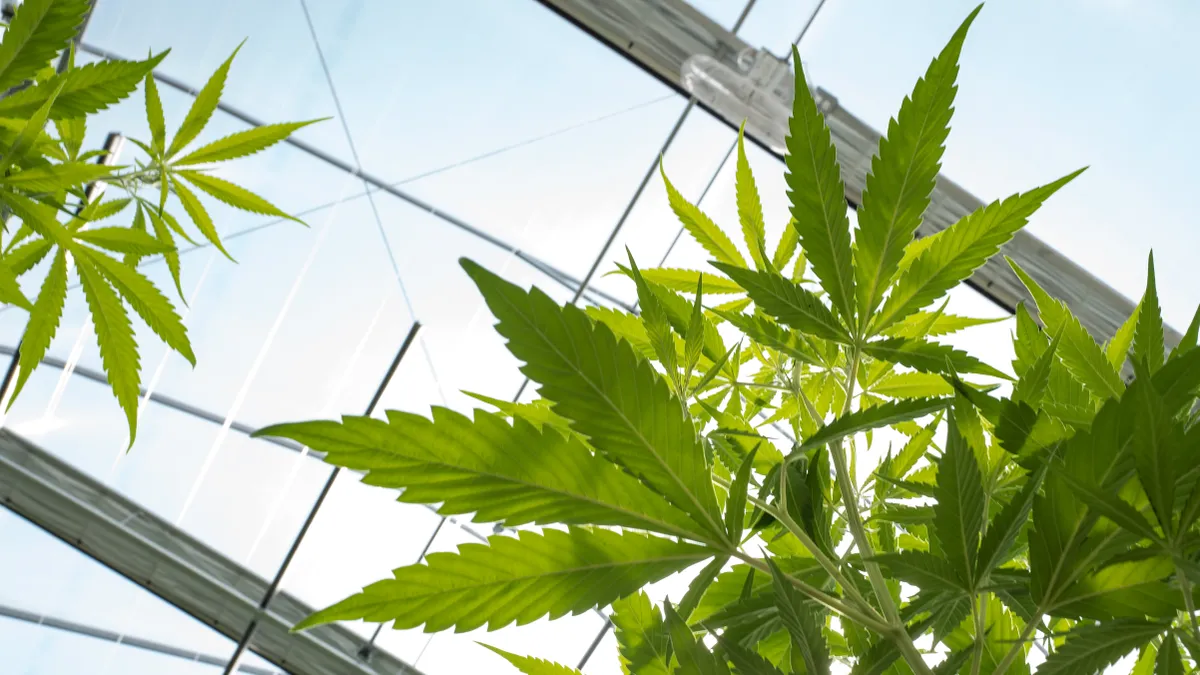WASHINGTON — Will the National Labor Relations Board enforce labor law protections in the cannabis industry? This question was raised by an attendee at the American Bar Association’s 2022 Labor and Employment Law conference, Nov. 10.
The inquiry came just days after Maryland and Missouri legalized recreational cannabis in the 2022 midterm elections, reigniting discussion on what many HR professionals and legal teams say is one of the most challenging compliance issues.
In posing their question, the attendee acknowledged that the Board had exercised jurisdiction in medical marijuana-related cases. “Have they considered whether they will be able to exercise jurisdiction over recreational marijuana, knowing that it is still illegal under federal law?” they asked.
“To that question, I think I can say this — and someone may shoot me — but there are cases before the board dealing with the retail sale of marijuana,” Hon. David M. Prouty said. The attendee pushed a little, asking if the board has “definitively stated” whether it will exercise jurisdiction, mentioning that the employer might raise jurisdiction as a threshold issue.
“Your question is because it’s a federal crime now?”
“Right.”
“Can’t answer that, sorry,” Prouty said without missing a beat, at which conferencegoers erupted into laughter.
NLRA protections for weed workers are murky
An interesting case study is that of Wellness Connection of Maine, a prominent medical marijuana operator. Back in 2014, the Office of the General Counsel recommended a regional NLRB office investigate unfair labor practice charges — in this case, unlawful surveillance, interrogation and retaliatory discipline and termination — against Wellness Connection of Maine.
First, this raised the question about whether its marijuana processing assistants were agricultural workers exempt from National Labor Relations Act protections. Wellness Connection of Maine grows, processes and retails cannabis, and operates multiple dispensaries across the state, and the Board concluded that “an enterprise that is involved in the medical marijuana industry is within the board’s jurisdiction if it otherwise meets the board’s monetary jurisdictional standards, and that the board should assert jurisdiction over this type of business enterprise.”
The Board noted the Occupational Safety and Health Administration investigates and cites companies in this scene, including Wellness Connection of Maine; and the United Food and Commercial Workers International Union represents these workers through its Medical Cannabis and Hemp Division.
In 2021, however, the Board concluded that workers at a separate cannabis company were agricultural workers because they harvested and pruned plants by hand.
TL;DR: If nonagricultural workers have complaints to make against a medical cannabis employer, it’s not yet totally clear whether the NLRB will step in.
What could protections for recreational cannabis workers look like?
Ultimately, the ruling in the 2014 case study came down to money. As noted in the guidance, the NLRB has declined to claim jurisdiction over certain classes of workers — sometimes including folks in nonprofits and charities, “small intrastate firms,” and those in the dog racing and horse racing industries. “The Board has generally relied on findings that an employer was small, local, and did not significantly affect commerce or that a state or foreign entity exerted significant control or regulation over an employer,” members wrote.
In contrast, Wellness Connection of Maine was estimated to serve about three-fourths of Maine’s medical marijuana users back in 2013 when NLRB deliberated the case. It emphasized that not only did the cannabis company “meet the board’s monetary jurisdictional thresholds,” but that a “labor dispute involving the industry could have a substantial effect on interstate commerce.”
Plainly speaking, the NLRB might be inclined to get in on labor disputes regarding recreational cannabis workers, should the charges be made against multi-state operators or deeply profitable dispensary chains.













